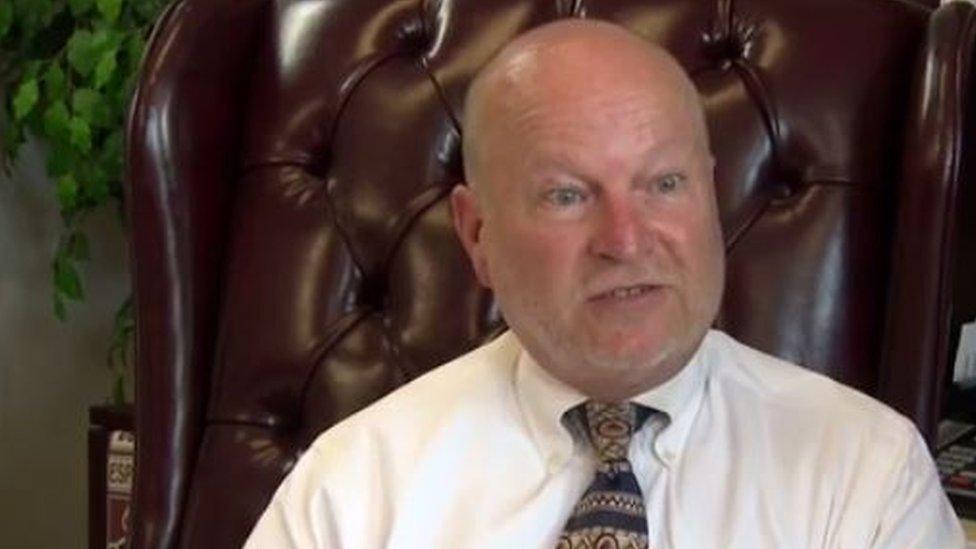Inmates offered reduced sentences for birth control procedure
- Published

Judge Benningfield says he 'hopes to encourage personal responsibility'
A judge in the US state of Tennessee is offering to reduce jail sentences for any inmate that volunteers to undergo a birth control procedure.
Since Judge Sam Benningfield signed the legal order in May, 32 women and 38 men have volunteered in exchange for 30 days shaved off their sentence.
The order has drawn fire from the local prosecutor, and by the American Civil Liberties Union (ACLU).
Vasectomies are offered for men and hormone implants in the arm for women.
"I hope to encourage them to take personal responsibility", the White County judge told WTVF-TV, external, "and give them a chance, when they do get out, not to be burdened with children.
"I understand it won't be entirely successful but if you reach two or three people, maybe that's two or three kids not being born under the influence of drugs."
"I see it as a win, win," added Judge Benningfield, who was elected in 1998 to serve as judge for the rural county 100 miles (160km) east of Nashville.
The procedures - vasectomies for men and Nexplanon implants for women - and are being offered for free by the Tennessee Department of Health, officials say.

The order was issued in May
The ACLU slammed the judge's order, saying: "Offering a so-called 'choice' between jail time and coerced contraception or sterilisation is unconstitutional".
"Judges play an important role in our community - overseeing individuals' childbearing capacity should not be part of that role," said ACLU Tennessee director Hedy Weinberg in a statement.
Defence lawyer Brandon Griffin, who has two clients who have volunteered for the procedure, says that prisoners will generally do whatever they can to get out of prison as early as possible.
"Criminal defendants, their general position is they want out of jail - that's their standard acting, driving force," he told the BBC.
Tennessee public defender Craig Fickling said he understands what motivated the judge's order, but thinks it may be misguided.
"It is very hard and depressing for prosecutors and defence attorneys and judges to see the same people over and over again" he said, adding "you start seeing the children and grandchildren of clients making the same mistakes".
"I think that he probably did this as an effort to address that and I think he's gone about it the wrong way."